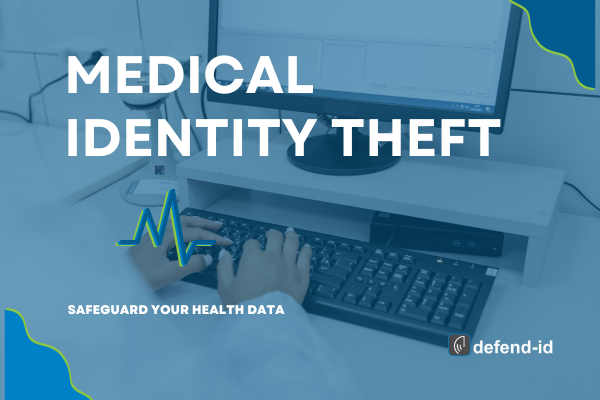Protecting your personal health information is more important than ever. Medical identity theft—when someone uses your health data for fraudulent purposes—can lead to devastating financial losses, compromised care, and long-lasting credit issues. In this article, we explore what medical identity theft is, outline best practices for safeguarding your information, and provide actionable steps you can take if you suspect your data has been compromised.
I. Understanding Medical Identity Theft
What It Is and Its Impact
Medical identity theft occurs when a criminal uses another person’s health information (like your name, Social Security number, or health insurance details) to obtain medical care, submit fraudulent claims, or receive unauthorized prescriptions. Unlike traditional identity theft, this type of fraud affects your finances and ability to access necessary healthcare services. Victims may face billing errors, treatment delays, and damage to their credit scores.
Common Methods of Theft
- Data Breaches: Cyberattacks on hospitals and healthcare providers have led to massive leaks of patient data.
Link: FTC Data Breach Notifications - Phishing Attacks: Fraudsters send deceptive emails or texts posing as trusted healthcare institutions to trick you into revealing sensitive information.
- Insider Threats: Unsecured patient records and unauthorized access by staff can also result in stolen data.
II. Best Practices for Protecting Your Medical Identity
Secure Your Health Records and Personal Information
- Strong Passwords & Multi-Factor Authentication: Use complex, unique passwords and enable multi-factor authentication for healthcare portals. This extra layer of security ensures that even if your password is compromised, unauthorized access remains unlikely.
- Digital Health Cards & Encrypted Portals: Whenever possible, opt for digital health insurance cards and secure, encrypted patient portals. Many healthcare providers now offer mobile apps for safe access to your records.
Monitor Your Medical and Financial Statements
- Regular Reviews: Make it a habit to review your Explanation of Benefits (EOB) statements and medical bills for any discrepancies or charges you don’t recognize.
- Account Alerts: Set up notifications on your bank and credit accounts to detect suspicious activities early.
Utilize Identity Theft Protection Services
- Credit Freezes & Fraud Alerts: Consider placing a credit freeze with major bureaus (Experian, Equifax, TransUnion) to prevent new fraudulent accounts.
- Professional Monitoring: Identity protection services can continuously monitor your data and alert you if your information is compromised.
Follow HIPAA and Regulatory Guidelines
- Know Your Rights: Familiarize yourself with HIPAA and state-specific regulations regarding medical data. Ask your healthcare provider about their data security measures.
- Secure Data Practices: Ensure that any provider you work with complies with federal and state guidelines.
Educate Yourself and Your Family
- Stay Informed: Cybersecurity threats are ever-evolving. Regularly update yourself on the latest scams and breaches.
- Family Awareness: Encourage your family—especially vulnerable members—to adopt secure practices, like using strong passwords and being cautious about sharing personal data.
III. Tools and Technologies to Combat Medical Identity Theft
Biometric Authentication & Digital Health Records
Modern healthcare providers increasingly use biometrics (such as iris scans and facial recognition) to verify patient identities. These technologies help ensure that only you can access your medical records.
Data Encryption and Secure Storage Solutions
Encryption protects your data in transit and at rest. Secure cloud storage and encrypted electronic health record (EHR) systems significantly reduce the risk of unauthorized access.
Trusted Identity Management Software
Specialized identity management tools help verify identities, monitor for suspicious activity, and provide immediate alerts if unauthorized access is detected.
IV. What to Do If You Suspect Medical Identity Theft
Immediate Steps to Take
- Document Suspicious Activity: Keep detailed records of any unauthorized charges or discrepancies in your medical or financial statements.
- Contact Your Healthcare Provider: Inform your provider about any irregularities in your records so they can verify and secure your information.
Reporting and Recovery
- Report to the FTC: File a report at IdentityTheft.gov to initiate a formal recovery plan.
- Notify Local Law Enforcement: A police report serves as crucial documentation if you need to dispute fraudulent charges.
- Seek Professional Help: Consider using professional identity recovery services for assistance in restoring your information and credit.
Download Our Free Identity Theft Recovery Checklist
FAQ
Q: What is medical identity theft?
A: Medical identity theft occurs when someone uses your personal health information to commit fraud—such as obtaining unauthorized medical services or filing fraudulent insurance claims.
Q: How can I secure my health records?
A: Use strong, unique passwords, enable multi-factor authentication, opt for digital health cards and encrypted portals, and regularly review your medical statements for any discrepancies.
Q: What should I do if I suspect medical identity theft?
A: Document any suspicious activity, contact your healthcare provider, report the issue to the FTC via IdentityTheft.gov, and file a police report. Professional recovery services can also help restore your identity.
Conclusion
Medical identity theft is a serious threat with far-reaching consequences—not just financial, but also in terms of your access to vital healthcare. By securing your digital health records, monitoring your accounts closely, and staying informed about the latest cybersecurity threats, you can significantly reduce your risk. Take proactive steps today: update your passwords, educate your family, and use trusted identity protection services.
